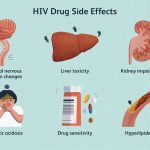
Contents
Is Erectile Dysfunction Permanent?
Erectile dysfunction (ED) occurs when you have trouble getting or maintaining an erection on a regular basis. It can disrupt your sex life and is treated with lifestyle, behavioral, medical, and surgical interventions.
ED is a common condition that affects at least 10% of people with penises.
The permanence of ED depends on its cause and how your body responds to treatment.
The main symptom of ED is difficulty getting or maintaining an erection during sexual activity. You may also experience decreased desire for sex or stress related to sexual activity.
To be diagnosed with erectile dysfunction, you must experience difficulty with erections on a regular basis for a certain period of time.
Other symptoms may occur depending on the cause of your ED. For example, depression can be a cause of ED and can contribute to feelings of sadness and fatigue.
Causes of Erectile Dysfunction
ED may be caused by physical or mental factors, often a combination of both.
- Cardiovascular disease can restrict blood flow to the penis, reducing your ability to get or maintain an erection.
- Nerve damage from conditions like diabetes, stroke, or multiple sclerosis can also affect the signals to the penis.
- Injury, such as spinal cord injury, can lead to erectile or ejaculatory dysfunction.
- Mental health conditions including depression, anxiety, and stress can contribute to erectile dysfunction.
- Low levels of testosterone or certain medications may cause ED.
- Lifestyle factors like smoking, heavy drinking, drug use, and lack of exercise can also contribute to ED.
Who Can Get Erectile Dysfunction?
ED can affect anyone with a penis and is very common. In the US, about 30 million men have erectile dysfunction.
ED is more likely to occur as you age, with half of men over 40 experiencing it at some point.
Risk factors include high blood pressure, smoking, drug use, heavy alcohol consumption, obesity, sedentary lifestyle, high cholesterol, and diabetes.
How Is Erectile Dysfunction Diagnosed?
Doctors can diagnose ED through medical history and physical examination. They may also use blood and urine tests, ultrasound, and mental health screening to determine the underlying cause.
Treatments for Erectile Dysfunction
Once the underlying cause is determined, doctors will recommend appropriate treatment.
Prescription medications that increase the effects of nitric oxide can relax the penis muscles and improve blood flow.
Injections of Alprostadil can expand the blood vessels of the penis and create an erection.
Penis pumps create a vacuum that draws blood into the penis to create an erection.
Surgery is considered when other treatments have failed, and implants are inserted into the penis to allow for controlled erections.
Lifestyle changes such as exercise and healthier diet can treat ED, especially in obese individuals. Quitting smoking and addressing mental health concerns can also be beneficial.
When to See Your Doctor
Talk to your doctor if you experience distress or have concerns about ED. It’s important to seek help if you have conditions that may contribute to ED or if you have other related symptoms. There are many available treatments that can help, and ED may not be permanent.
Sources: Asian Journal of Andrology, Cleveland Clinic, Indian Journal of Psychiatry, Mayo Clinic, Urology Care Foundation, Yale Medicine


